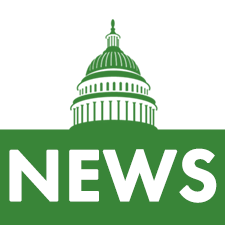Pallone Opening Remarks at Markup of Communications and Technology Bills
Energy and Commerce Chairman Frank Pallone, Jr. (D-NJ) delivered the following opening remarks today at a Communications and Technology Subcommittee markup of seven bipartisan bills:
Today, the Communications and Technology Subcommittee will mark up seven bipartisan bills that will collectively strengthen our communications networks, make phone and internet service more affordable, and help protect Americans.
First, we will consider a bill that helps address the barriers faced by households that can’t afford phone and internet service. The Federal Communications Commission (FCC) administers two important programs that address affordability – the Affordable Connectivity Program and the Lifeline Program. Right now, we know that both programs are under-enrolled and not helping everyone who could benefit from them.
H.R. 4275, which was introduced by Representatives Luria and Katko, requires the FCC to annually submit a report to Congress on the enrollment of individuals in these two programs who also participate in programs like the Supplemental Nutrition Assistance Program (SNAP), Medicaid, and Federal Pell Grants. It would also require the Government Accountability Office (GAO) to identify the outreach and publicity efforts for programs to make sure that qualified households know and can sign up for them. This bipartisan legislation should help us reach more of the people who could benefit from these programs.
We will also consider two bills directed at the work of the National Telecommunications and Information Administration (NTIA). Taken together H.R. 4990 and H.R. 5486 provide NTIA with the resources to develop innovative spectrum management technologies, led in part by NTIA’s Institute for Telecommunication Sciences. I thank Representatives O’Halleran, Carter, Matsui, and Guthrie for their bipartisan work on these bills.
We will also mark up H.R. 5400, the Preventing Disruptions to Universal Service Funds Act, introduced by Representatives Hayes and Veasey. This legislation extends the Antideficiency Act exemption on the FCC’s Universal Service programs. Without this extension, programs like Rural Broadband, Rural Health Care, Telemedicine, E-Rate, and Lifeline could be at risk.
Our fifth bill for consideration is H.R. 7132, the Safe Connections Act, introduced by Representatives Kuster and Eshoo. This bill will help protect survivors of domestic violence, human trafficking, and other related crimes. It does this by requiring mobile providers to separate the survivor’s phone line from an account shared with their abuser, without financial penalties or other potential challenges upon request from a survivor. The FCC is also required to establish emergency communications support for these survivors. I am pleased we are moving this forward on a bipartisan basis.
We will also consider two important bills related to how the government manages our airways. H.R. 7783, the Extending America’s Spectrum Auction Leadership Act, was introduced by Representatives Davids, Joyce, Welch, and Johnson. This bill would extend the FCC’s auction authority by 18 months from its expiration date later this fall. The goal is to ensure the FCC will be able to hold its planned spectrum auction in July without disruption, and to successfully close out those auctions that have already occurred. Congress has never let the FCC’s spectrum authority lapse, and today’s action puts us one step closer to extending it once again.
Finally, we will consider H.R. 7624, the Spectrum Innovation Act, introduced by Chairman Doyle and Ranking Member Latta. This bipartisan legislation helps streamline the process for making airwaves in the Lower 3 gigahertz band available for commercial use. It also establishes a process for the Secretary of Commerce to identify, with assistance from the Department of Defense and the FCC, at least 200 megahertz in the Lower 3 gigahertz band for exclusive or shared use. The legislation also requires an auction of these airwaves within seven years.
It is imperative that the federal government continue to follow the tried-and-true statutory framework Congress has provided in making our airwaves available for commercial wireless use, which is why the Spectrum Innovation Act is so necessary.
I am also pleased that we have reached agreement to fund important public programs with the proceeds from the auction required in the Spectrum Innovation Act. Next Generation 9-1-1 networks will save lives by giving first responders the information they need to respond to dangerous situations. We must fund this program so that all communities have access to these advanced networks. We will also fully fund the FCC’s rip and replace program to ensure that our communications networks are not vulnerable.
I thank Ranking Member Rodgers, Chairman Doyle, Ranking Member Latta, as well as Representatives Eshoo, Matsui, Hudson, and Guthrie for their efforts in getting this bill ready for mark up.
I appreciate the work of my colleagues to reach bipartisan agreement on these important bills and look forward to advancing these proposals to the full Committee.
###








Gloss